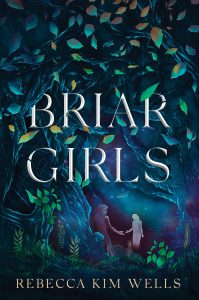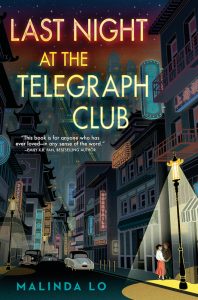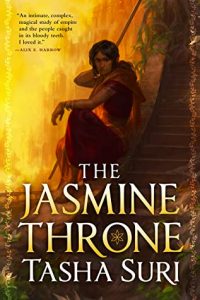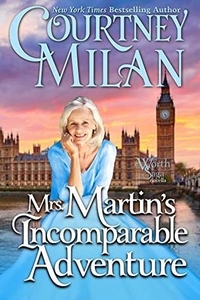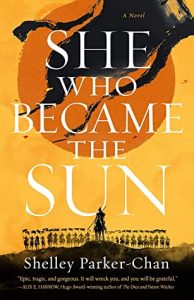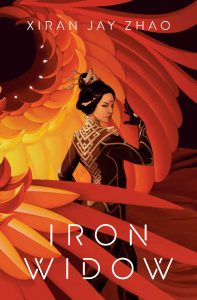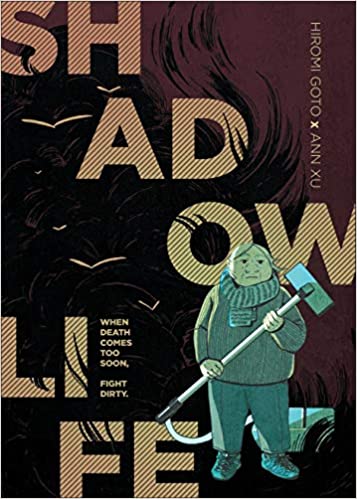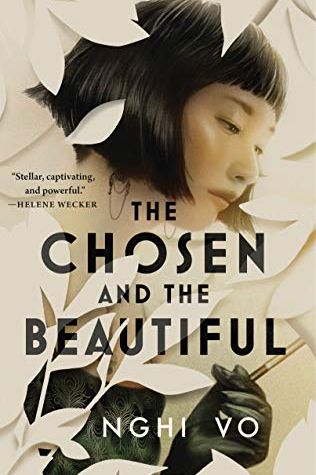Amazon Affiliate Link | Bookshop.org Affiliate Link
A suspenseful tale of vengeful ghosts, family secrets, and self discovery – it’s funny, it’s creepy, there are twists and turns, gods and spirits, and a queer main character who’s just trying to get her shit together. What more can you ask for?
Jessamyn Teoh is the daughter of immigrant parents, freshly graduated from Harvard with no job prospects and a struggling long distance relationship with her girlfriend. If that wasn’t tough enough, Jess is preparing to return to Malaysia with her very traditional parents, pushing her even farther into the closet. In a roundabout way, this story shapes up to be a coming of age/coming out story of a late bloomer. Our main character is a self described “shut-in with no friends,” and many of her struggles are internal. This is quite fitting when much of the story is about spirits who can literally enter your body to haunt and possess you, and you can have entire conversations without saying a single word aloud.
Despite the serious nature of bodies controlled by restless spirits and vengeful gods, while grappling with sexuality and life’s purpose, this book had me cackling the entire time. Our plucky protagonist has a dry wit and plenty of snarky commentary, and then there’s her meddlesome aunties and tiresome uncles, who are equal parts amusing and stifling. And that leads us to one of Cho’s most intriguing characters, Ah Ma, Jess’ spirit grandmother. Ah Ma is larger than life, even in death, and never shy about telling you how she really feels.
As Jess learns of her family secrets, while keeping a few of her own, she also finds her voice and a newfound confidence, as she’s forced to face her darkest fears. While most of us haven’t literally been visited or overtaken by a dead relative’s spirit, many of us do know what it’s like to be haunted by our own private fears or struggle with the concept of home and belonging.
While at first glance this might appear to be a straightforward supernatural suspense, and an exciting and enjoyable read (and I want to lure you in with that prospect,) also know that Cho is coming at you with a lot of serious material: sexuality, religion, racism, cultural identity, and the struggles of immigrant communities both in the US and abroad. There’s a lot to unpack and consider if you’re up for it.
As for culture, I loved experiencing Malaysia through Jess’ eyes, as she too is a visitor there. I didn’t know much about Malaysia and religions in that region, so I found myself Googling details throughout the reading, from food to dialect. Meanwhile, Jess is navigating her feelings of not belonging to any particular place, but also seeing a side of her parents that she never saw when they lived in the US. And Cho’s use of language and sentence structure throughout the novel is one of the keys to its success, further immersing us in her world.
It’s really hard to do this story justice because there’s so much going on, but it’s never in a way that feels overwhelming. It might be better described as a journey composed of many side quests that each unlock awareness in our main character. While this isn’t a romance (or even really about Jess’ sexuality), the novel still leaves us with an optimistic ending and a feeling of closure, which in these pandemic times is very much appreciated. Absolutely one of my favorite reads in 2021!
Content warnings: violence, attempted sexual assault, implied assault/rape


